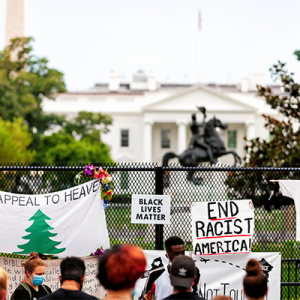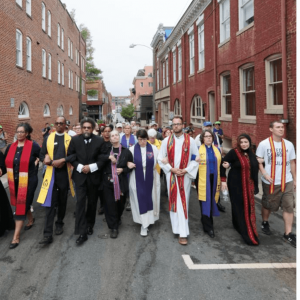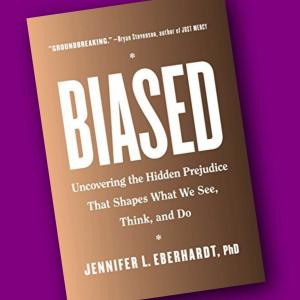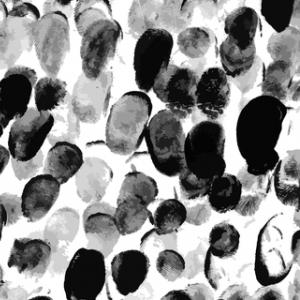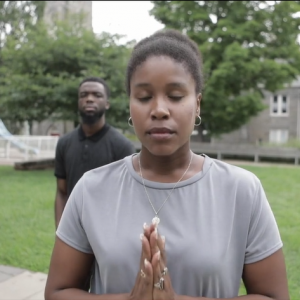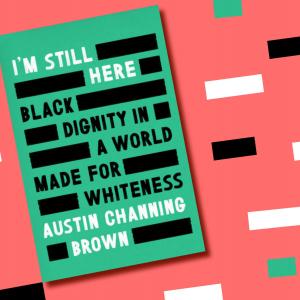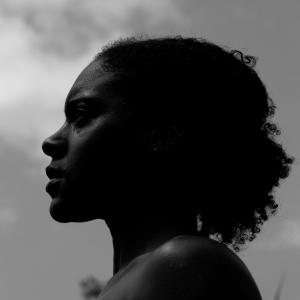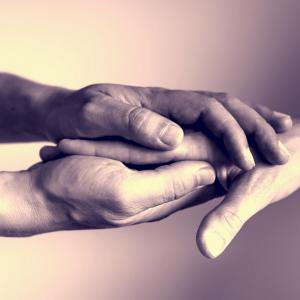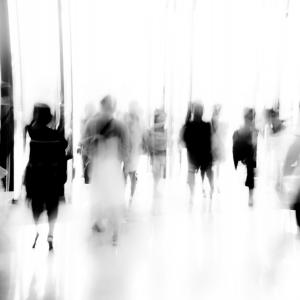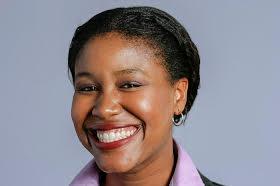
Whitney Parnell is a Black millennial activist, singer, and the CEO and founder of Service Never Sleeps, a nonprofit that mobilizes communities to promote “Allyship” — an active way of life that exercises bridge-building to ensure equality, opportunity, and inclusion for everyone. Whitney is also releasing social justice album this fall, titled What Will You Do. The album uses empathy as a call to action, and all proceeds will go toward SNS.
Whitney is excited to create a movement of service and Allyship by igniting social change through mass civic engagement, bridge-building, and empathy.
Posts By This Author
Sonya Massey, Kamala Harris, and Countering Misogynoir With Biblical Truth
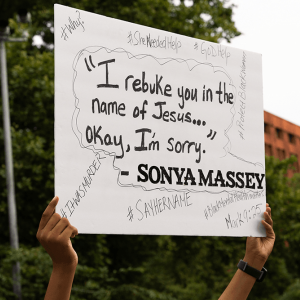
People gather for a rally in protest of the police killing of 36-year-old Sonya Massey in Washington Square Park, Manhattan on July 25, 2024. Massey was killed in her home after two police officers responded to her call for help with a suspected home intruder in Springfield, Ill. on July 6, 2024. Soon after entering the home, sheriff’s deputy Sean Grayson told Massey to check on a pot of boiling water on the stove. As Massey complied, the officers suggested she may throw the pot of water onto them, to which Massey replied “I rebuke you in the name of Jesus.” After apologizing for her comment, Grayson drew his gun and fired at Massey three times, once in the head. Sangamon County Coroner has ruled her death a homicide. Photo by Cristina Matuozzi/SIPA USA via Reuters.
How does a Black woman call for help and get killed by the people who came to support her?
Knowledge Is Dangerous to Institutionalized Power
This executive order is dangerous. Instead of acknowledging that diversity, equity, and inclusion trainings can help work towards the country’s ideals of “liberty and justice for all,” it labels them as reverse racism and sexism.
Remembering Moments of Everyday Racism, 2 Years After the Charlottesville Rally
Yes, August 12, 2017 was a horrible day that should be named for its extreme and intolerable act of white nationalism, but people of color are navigating detrimental impacts of white supremacy every day, both personally and institutionally within our education, economic, and criminal legal systems.
Identify, Examine, Rectify
Biased is for every person who claims to not see color. As someone who navigates that phrase regularly in my professional anti-racism work, I was thrilled to read a book that swiftly debunks that statement—with data to back it.
Jennifer Eberhardt thoroughly outlines how racial bias is unavoidable in a society that historically institutionalized white supremacy, and she incorporates case studies, personal experiences, surveys, scientific research, and numerical data to prove it. She walks us through examples of various settings and institutions where this bias presents itself: policing, incarceration, socioeconomic status, schooling, housing, employment, customer service, personal interactions. All confirming that racial bias is, in fact, everywhere.
You May Have Never Worn Blackface, But You Can Still Be Racist
White supremacy is woven and embedded into society as a system so intricately that it can be invisible, mistaken for normalcy because, in fact, that’s what it is. Instead of seeing white supremacy as blatant acts of intentional harm, I challenge us to consider how this country was built to center whiteness. It’s a virus and an energy. It is a virus because it is a sickness at the core of so much harm, and it’s an energy because in its natural state — this country is conditioned to operate in accordance with whiteness: white culture, white thriving, white favoritism, and white comfort.
4 Truths to Equip the Fight Against White Nationalism
On Aug. 12, 2017, I woke up keenly aware that I might die. I reflected on this reality during my drive to Charlottesville, Va., with plans to stand up for love and peace against white supremacy. I left Charlottesville physically unharmed, but scarred for life. I was scarred by the fact that Heather Heyer had been killed, that people, including friends, were injured in the terrorist attack, that my life had been blatantly threatened numerous times with people who chanted racial epithets and glared at me with their rifles, and that I had personally witnessed such intense vitriol towards my very existence. I drove away convinced that I would never return.
In the U.S., Family Separation is Nothing New
The current outrage around families being detained and separated is important, but we must bear in mind that it aligns with a national history. Our Native siblings had their land taken from them, their families wiped out so the U.S. could be “founded.” My own ancestors had their children ripped away from them during slavery sales. Our Japanese siblings were placed in armed internment camps during the second World War — a history that this nation has often tried to avoid as much as possible. Last year, we saw an attempt to block immigrants and refugees from primarily Muslim nations, commonly known as the “Muslim Ban.”
To Understand and Be Understood
I READ Austin Channing Brown’s incredible book in one sitting. This is one that every black woman needs to read to be validated and every white person needs to read to receive some perspective (and empathy) that will help inform their behavior and interactions. In this short book, Brown has concisely articulated the burdens, questions, and frustrations that I find myself experiencing daily as a black woman.
Brown brilliantly navigates explaining the intersections of blackness and womanhood, the microaggressions between workspaces and social circles, and the constant fears that so many black people face around losing everything (including life) in one moment. She “goes there” by highlighting that churches can present the most danger and racism for black people, and even chooses to address the riskiest topic of them all: the immense harm that can be caused by well-meaning, progressive white people.
Please Stop Calling the Police on Us
Despite the frequency, I have made the decision to allow myself to feel the anger and pain that comes with every example of community profiling, because desensitization feels far more dangerous to me. While this is just a reality for black and brown people, these examples of back-to-back national headlines help provide justification for our outrage and fear. They demonstrate that nowhere seems safe for people of color, and instances like these happen everywhere — including in our own neighborhoods. What cannot be denied is that there is a common thread behind these encounters: A scared white person. For all who feel threatened by even the mere presence of people of color, I have one simple request: Please stop calling the police on us.
Please Stop Telling Me to Be a 'Good Little Black Girl'
As a black woman, my confidence is not just perceived as arrogance, but as intimidating and angry.
We Should Not Run from Burden
While casting our troubles onto God is a critical aspect of our faith, I fear that we often interpret burden as one-directional, particularly with how we react to social injustice. These days, it is hard to miss the consistent threat to human rights on multiple levels, but it is still possible to avoid responding to them. Particularly during the past year, I have heard so many colleagues verbalize their decisions to avoid watching or reading the news because it’s too distressing. Furthermore, common responses from Christian colleagues to my (admitted) rants about the world’s concerning state include “It’s not of God to worry,” and “All of this is a part of God’s master plan.” The feedback that strikes and disturbs me most is when I hear that we should ultimately go to God to comfort our distress over the world’s injustice, often insinuating self-soothing over action.
To Our White Friends: Empathy Is Not Enough
As I attempt to navigate my new normal after the traumatizing experience of standing up for love against white supremacy in Charlottesville, I am certain that empathy alone is not enough. True empathy, particularly in relation to social justice, must be followed by action. Otherwise, the cycle of marginalization, oppression, discrimination, and pain will continue.
